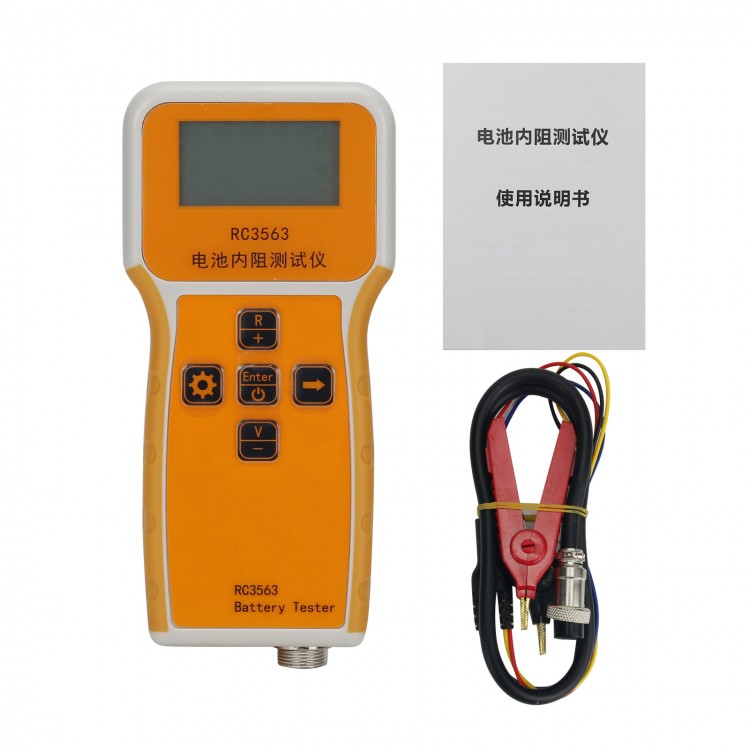
| Quantity | 3+ units | 10+ units | 30+ units | 50+ units | More |
|---|---|---|---|---|---|
| Price /Unit | $51.33 | $50.28 | $48.71 | $46.62 | Contact US |
 TS-6210-W White Wireless Digital Thermo-hygrometer with 4.72-inch Screen Real-time Temperature and Humidity Detector
$27.56
TS-6210-W White Wireless Digital Thermo-hygrometer with 4.72-inch Screen Real-time Temperature and Humidity Detector
$27.56
 TS-6210-B Black Wireless Digital Thermo-hygrometer with 4.72-inch Screen Real-time Temperature and Humidity Detector
$27.56
TS-6210-B Black Wireless Digital Thermo-hygrometer with 4.72-inch Screen Real-time Temperature and Humidity Detector
$27.56
 DXL180 Digital Angle Gauge Support Angle/Slope/Inches/MM/M Reading 0.05° Resolution 128x64 LCD Screen
$30.06
DXL180 Digital Angle Gauge Support Angle/Slope/Inches/MM/M Reading 0.05° Resolution 128x64 LCD Screen
$30.06
RC3563 Battery Tester Battery Internal Resistance Tester w/ Clips For Lithium Lead-Acid Batteries
Download Computer Software:
https://pan.baidu.com/s/1O5E1a_7uuZf85Olyakpweg
Operation Video:
https://v.youku.com/v_show/id_XMzg5NDQ2NDM0NA==.html?spm=a2h0k.11417342.soresults.dposter
Description:
The battery internal resistance tester can measure the internal resistance and voltage of batteries at the same time.
Four-wire Kelvin clips are used to avoid the influence of contact resistance and wire resistance, enabling more accurate measurement.
This product adopts intelligent control, LCD display, and implanted Kalman filter mathematical algorithm. It has the advantages of high precision, high efficiency, low cost, light weight, energy saving and environmental protection. Built-in 1000mAh lithium battery, 5V charging, support mobile phone charger for Android. Very convenient to use.
This product is widely used in various battery production, maintenance, testing, scientific research laboratories and other occasions. It can also be used to measure the AC resistance of the battery and the resistance with low resistance and high precision.
Features:
- Support serial port and computer software test
- More stable, faster response, more reasonable design, can store more data. Software update from time to time
- V3.0 software adds barcode scanning function to improve the efficiency of mass testing
- Measurement result displayed immediately, fast and sensitive response
- Apparatus size is moderate, suitable for handheld work
- Test wire is regular, the craftsmanship is good, and the design is reasonable
- Gold plating effectively reduces contact resistance. Kelvin clips are suitable for various occasions. Tooth-shaped, effectively piercing the oxide layer. High-end silver-plated flexible cord, standard cord length is 1m/3.3ft. Line length can be customized
Technical Index:
- Measurement parameters: AC resistance, DC voltage
- Basic accuracy: resistance: 0.5%; voltage: 0.5%
- Measuring range: resistance: 0.0001mΩ~200Ω; voltage: 0.0001V~±100VDC
- Signal source: Frequency: AC 1kHz; Current: 2mΩ/20mΩ, 50mA; 200mΩ/2Ω, 5mA; 20Ω/200Ω, 0.5mA
- Range: Resistance: 6 ranges automatic and manual; Voltage: 3 ranges automatic and manual
- Test speed: 5 times/sec
- Calibration: Resistance: each range is individually manually calibrated without affecting each other; voltage: each range is individually manually calibrated without affecting each other
- Factory setting: save the factory information, one key can restore the factory state
- Backlight: Enter the setting menu to turn off and on the backlight
- Energy saving setting: 30 minutes delay, automatic shutdown without any operation
- Scope of application: cell phone, computer, electric vehicle and other battery maintenance, battery factory inspection and testing
- Display result: LCD screen display, directly read the value
- Power supply: built-in lithium battery, use 5V/1A to charge (fit mobile phone charger for Android)
- Dimensions: 166 x 80 x 28mm/6.5 x 3.1 x 1.1" (LxWxH)
- Weight: 173.5g/0.4 lb
- Language: switch between Chinese and English
- Option: computer test software, free update
Package Included:
- 1 x RC3563 Host
- 1 x Pair of Kelvin Clips
Note:
- Other items pictured are not included in the package, for demonstration purposes only. Thank you for your understanding!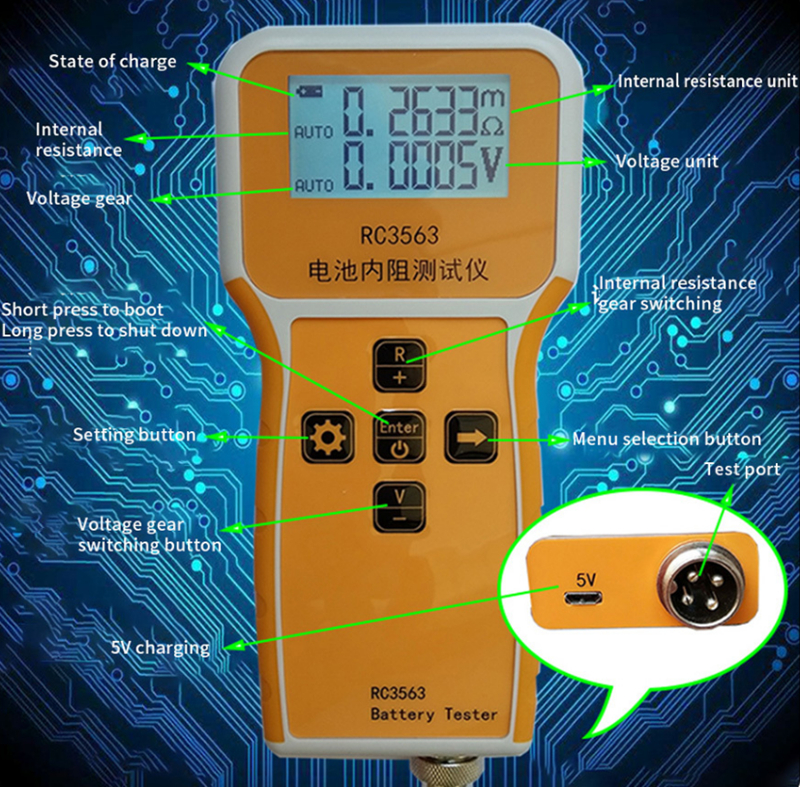
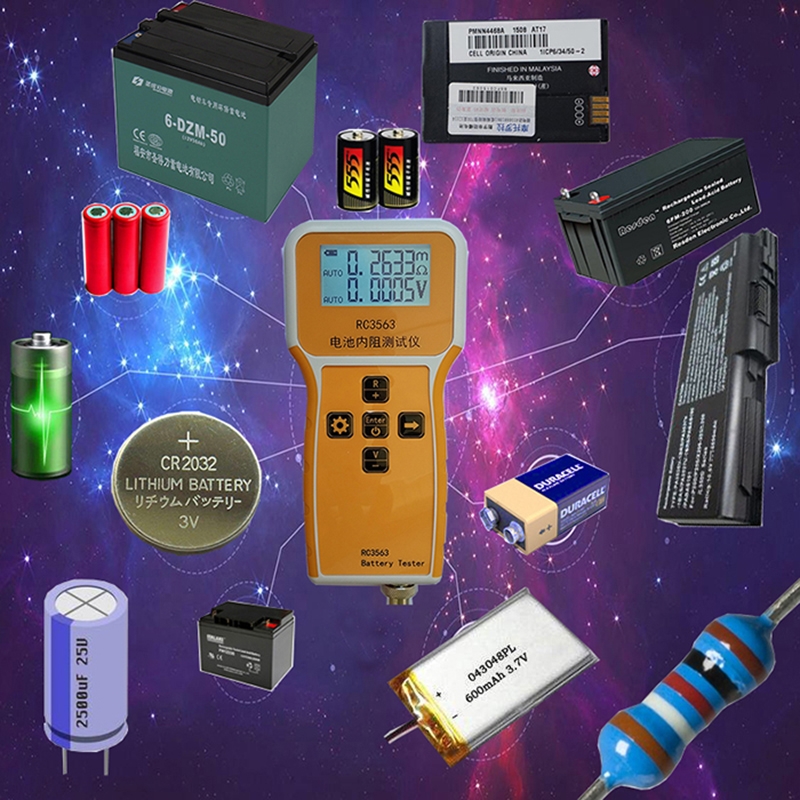
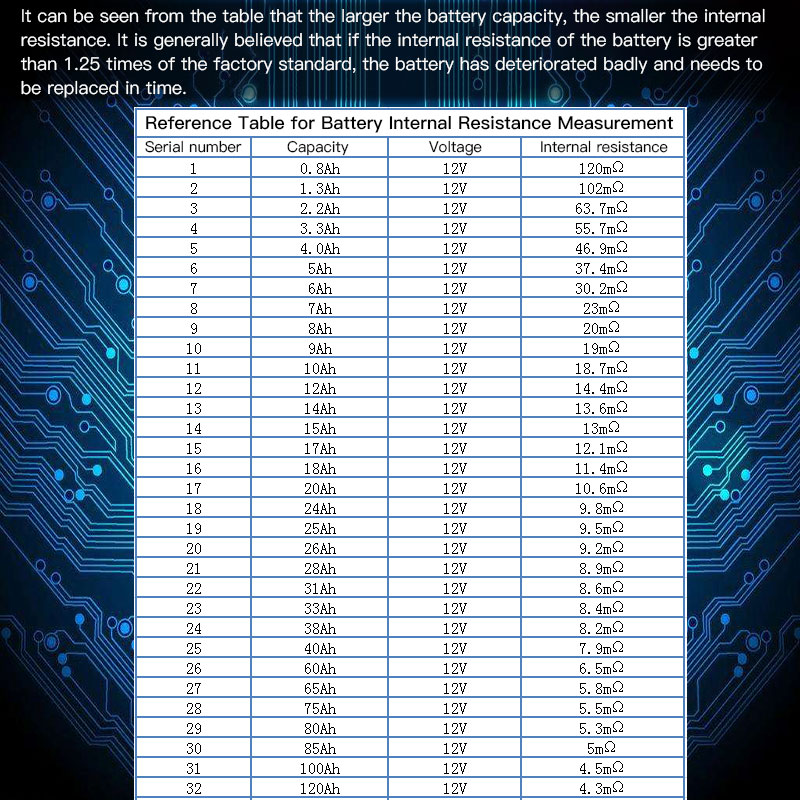
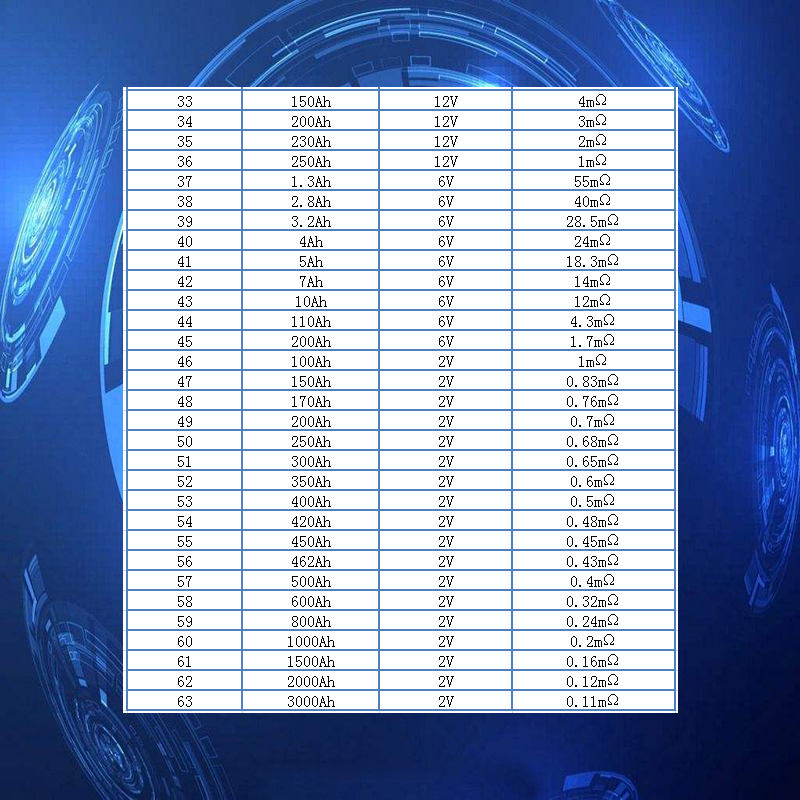
Attention:
- This battery internal resistance table is for reference only. Due to different brands and different processes, the internal resistance of batteries is different, and the specific internal resistance of batteries needs to be measured by the instrument.
- Batteries are not included.
FAQ:
Q1: Zero adjustment problem.
A1: The short circuit
between two clips is not zero and there is x.xxxmΩ, which is a normal
phenomenon. Only when the two clips are in perfect contact will the
minimum value (may be 0 or very close to 0). It does not matter if it is
not 0. During the measurement process, the internal program has
calculated the theoretical zero point, which does not affect the
accuracy and does not need to be calibrated to zero.
Q2: Does a battery need to be fully charged for measurement?
A2:
The battery's full and depleted state will not affect the internal
resistance of the battery and can be measured. The internal resistance
changes very little (except for defective batteries).
Q3 The measurement result is jittery, inaccurate, and unstable.
A3:
The test result is unstable. It may be that the test clip is in poor
contact with the battery, or the battery under test is unstable, the
electrode has an oxide layer, or there is a strong magnetic field around
it.
Q4: The measured internal resistance is greater than the battery internal resistance.
A4:
When measuring large-capacity batteries (the internal resistance is
very small), you must pay attention to the position of the clip during
the measurement. The internal resistance of the battery electrode or the
connecting wire is often greater than the internal resistance of the
battery itself, so when measuring a small internal resistance battery,
please pay attention to the position of the clip and make good contact.
Q5: Is it possible to measure XXXX batteries?
A5:
The instrument can measure any type of batteries, including lithium
batteries, lead-acid batteries, nickel-chromium batteries, dry batteries
and so on.
Q6: Why can the quality of battery be judged by measuring the internal resistance?
A6:
The same battery will gradually wear out during use, the capacity will
become smaller and smaller, and the internal resistance will become
larger and larger. The smaller the internal resistance of the same
battery, the stronger the load capacity, otherwise it will heat up or
fail to move. The better the performance of the battery, the slower the
aging, the worse the quality of the battery, the faster the aging.
Q7: What is the general internal resistance of 18650?
A7:
The internal resistance of the new 18650 lithium battery is generally
below 50mΩ, the better is about 20mΩ, the general is about 30mΩ, and the
worse is above 50mΩ.
Q8: What capacity battery can be measured?
A8:
You can measure batteries of any capacity, no matter how big, as long
as the internal resistance is within 0-200mΩ and the voltage is within
100V.
Q9: Is it possible to measure internal resistance online, and can it detect UPS power supply?
A9:
It can be tested online without affecting the battery operation, so the
battery can be tested continuously during UPS maintenance.